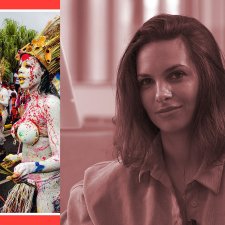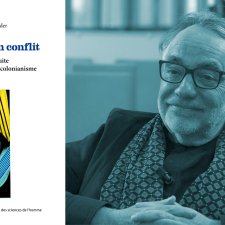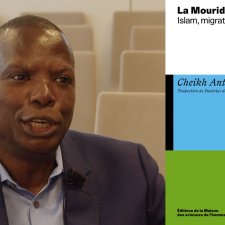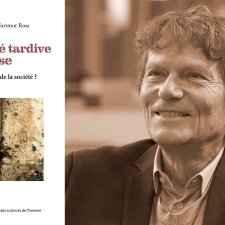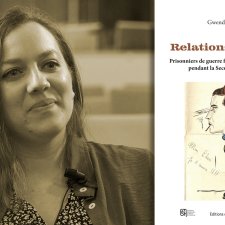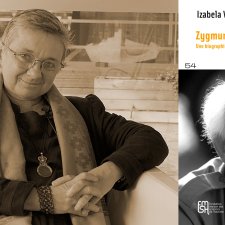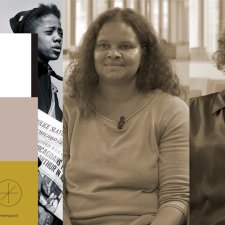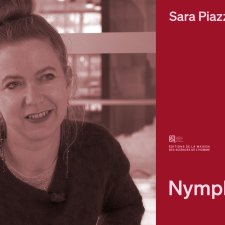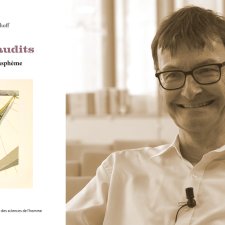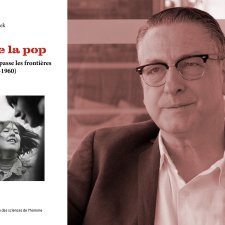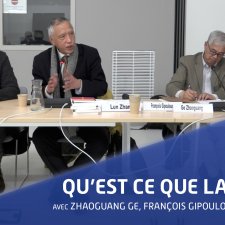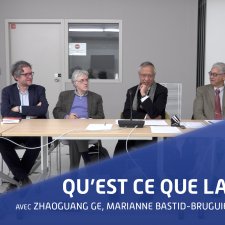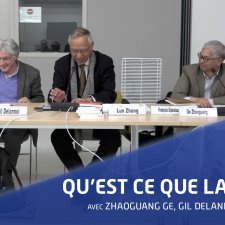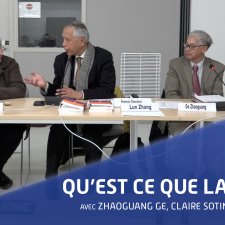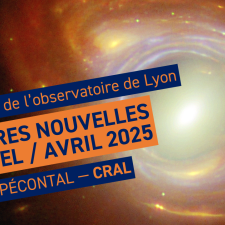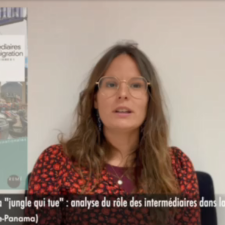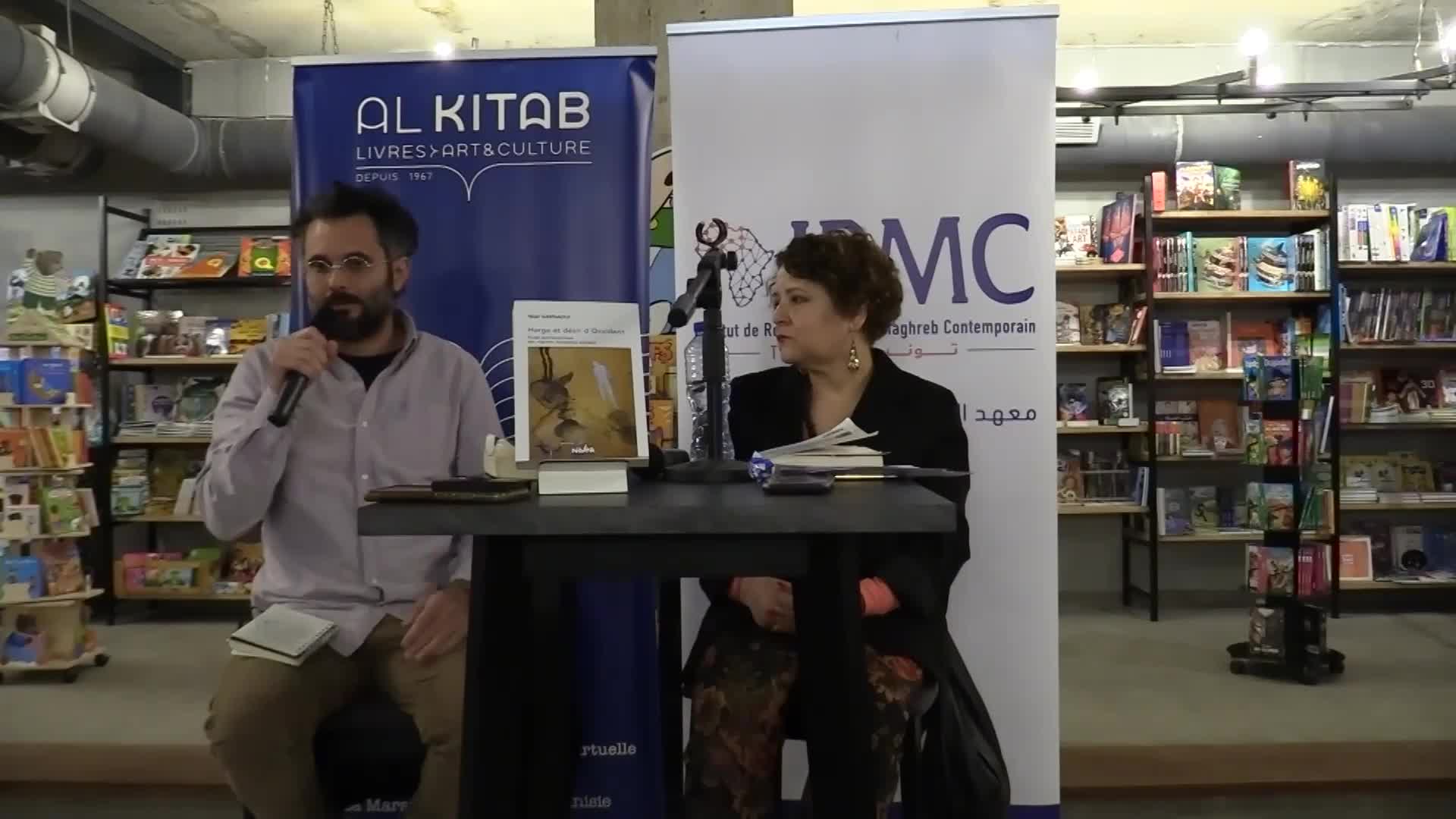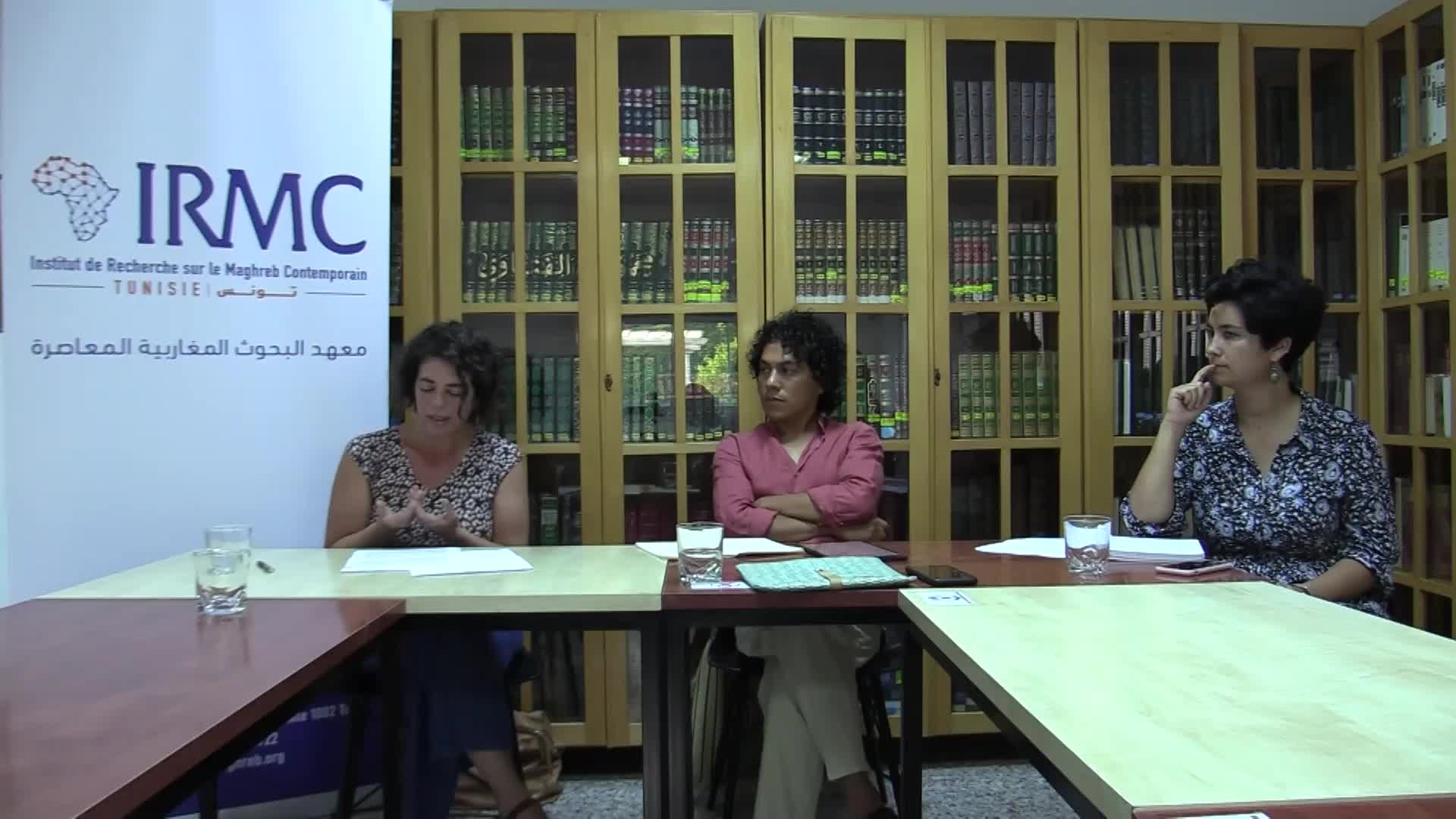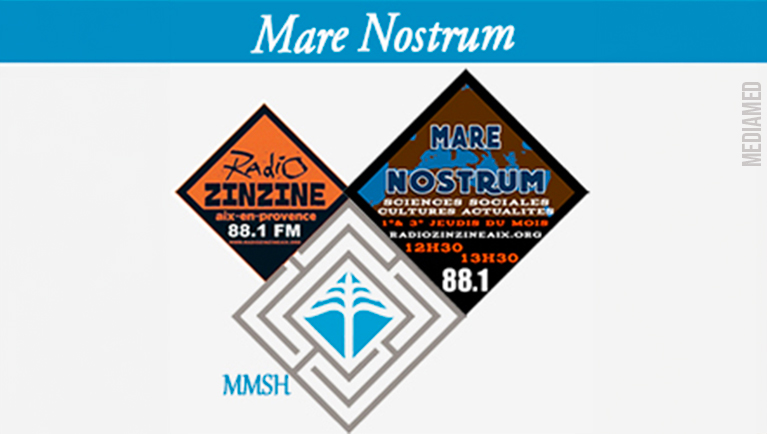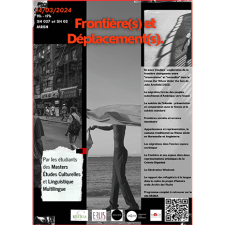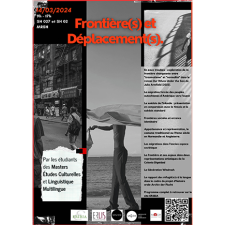Chapitres
- Présentation de M. Zhaoguang Ge00'38"
- Expérience de la révolution culturelle00'52"
- Historiographie chinoise01'07"
- Structure de l'ouvrage02'10"
- "Tanxia"02'10"
- Notion de Nation02'18"
- Evolution des frontières01'09"
- Grands moments des dynasties chinoises00'58"
- Expliquez la citation01'11"
Notice
Retranscription
I was born in 1950 and have lived through the whole of China's modern history. I was a farmer and a worker, and after the Cultural Revolution, I went to university. Since then, I have devoted myself to the study of history, especially the history of religion, thought and culture in East Asia, and I am currently working at Fudan University in Shanghai. I am now 74 years old and have been retired for three years. Anyone who has lived through China's modern history can see China and the world differently from other people. For example, I've lived in rural China, which is a so-called ethnic minority area in China, so I'm very interested in issues of ethnicity and identity. I've also lived through the era of reform and opening up, so I'm particularly interested in China's relationship with the world. I think that modern Chinese historiography would be between the end of the Qing Dynasty and the Republic of China, that is, between the 19th and 20th centuries. I still hold this view today. In other words, when Liang Qichao and Hu Shi opened up a new historiography in China, we went down that road, even though the road was fraught with pitfalls for various political reasons. Today, we still believe that this is a modern historiography to which we should adhere, which of course raises the problem that China is prematurely advocating a postmodern historiography that seems somewhat incompatible with this context. Since we have not yet become a postmodern society, we still adhere to the modern concept of historiography. I would like to raise three points. The first is that we should not think of China as an entity that has existed since antiquity, but rather as an entity that has developed and changed throughout history, from a traditional empire to a modern state, i.e. it has been shaped by the historical process rather than being as it has been since antiquity. Then we'll look at five words about China: The first is territory, the second is religion, the third is nation or ethnic group, the fourth is state, whether empire or modern state, and the fifth is the basis of identity. In this book, we focus on these five concepts. The third aspect is that today we are very concerned about how a country like China manages its national problems internally and its relations with the world externally. So, by understanding more about China, we can understand more about how its domestic and international problems have arisen. I don't think we can deal with and solve these problems within the framework of history, but we do have the responsibility to address them. I wrote this book to deal with China's emergence, its place in the world today, and its national problems from a historiographical point of view. At first glance, when we study the meaning of the word "天下", "world", there seems to be no difference with the word "世界", "universe", which is translated into English as "all under heaven". However, if we put it in its historical context, the Chinese "world" is centred, meaning a world centred on China, rather than an egalitarian, universal world as Kant put it. Therefore, when we see that the concept of "world" has been extracted from the traditional source, we fear that it will become a concept antagonistic to the current world order. In other words, we are not adding to or joining this world order but trying to create a new one. T…
Lire l'intégralitéQu'est-ce que la Chine ? Territoires, ethnies, cultures et histoire
- document 1 document 2 document 3
- niveau 1 niveau 2 niveau 3
Descriptif
Interview de Zhaoguang Ge, dans le cadre de la sortie de son ouvrage : Qu'est-ce que la Chine ? Territoires, ethnies, cultures et histoire, publié le 20 juin 2024 aux Editions de la MSH.
Dans la même collection
-
De la rue à la mairie
HamouDavidInterview de David Hamou, dans le cadre de la sortie de son ouvrage "De la rue à la mairie. Sociologie du municipalisme"
-
Voukoum. Esprits rebelles du carnaval guadeloupéen
PavyFloreInterview de Flore Pavy, dans le cadre de la sortie de son ouvrage "Voukoum. Esprits rebelles du carnaval guadeloupéen"
-
Mémoires en conflit. Points de fuite de l'Holocauste et du colonialisme
SznaiderNatanInterview de Natan Sznaider, dans le cadre de la sortie de son ouvrage "Mémoires en conflit. Points de fuite de l'Holocauste et du colonialisme"
-
La Mouridiyya en marche
BabouCheikh Anta Mbacké" La Mouridiyya en marche" est un livre essentiel pour comprendre les interactions entre spiritualité, culture et mondialisation, sur la communauté soufie des Mourides du Sénégal.
-
La modernité tardive en crise. Qu'apporte la théorie de la société ? - Hartmut Rosa
RosaHartmutInterview de Hartmut Rosa, dans le cadre de la sortie de son ouvrage "La modernité tardive en crise. Qu'apporte la théorie de la société ?"
-
Relations interdites. Prisonniers de guerre français et femmes allemandes pendant la Seconde Guerre…
CicottiniGwendolineInterview de Gwendoline Cicottini, dans le cadre de la sortie de son ouvrage "Relations interdites"
-
Zygmunt Bauman. Une biographie
WagnerIzabelaInterview de Izabela Wagner, dans le cadre de la sortie de son ouvrage "Zygmunt Bauman Une biographie"...
-
Black Metropolis : Une ville dans la ville. Chicago (1914-1945).
RaulinAnneAtukpeSarahInterview de Anne Raulin et Sarah Atukpe, dans le cadre de la sortie de l'ouvrage "Black Metropolis : une ville dans la ville. Chicago 1914-1945
-
Nymphoplastie. Coupez ce sexe que je ne saurais voir
PiazzaSaraInterview de Sara Piazza, dans le cadre de la sortie de son ouvrage "Nymphoplastie. Coupez ce sexe que je ne saurais voir"
-
Jardins en commun(s) - Politiser l'écologie ordinaire
SachseVictoriaInterview de Victoria Sachsé, dans le cadre de la sortie de son ouvrage "Jardins en commun(s). Politiser l'écologie ordinaire"
-
Dieux maudits - L'histoire du blasphème
SchwerhoffGerdInterview de Gerd Schwerhoff, dans le cadre de la sortie de son ouvrage "Dieux maudits. L'histoire du blasphème"
-
Histoire de la pop. Quand la culture jeune dépasse les frontières (années 1950-1960)
MrozekBodoInterview de Bodo Mrozek, dans le cadre de la sortie de son ouvrage "Histoire de la pop. Quand la culture jeune dépasse les frontières (années 1950-1960)"
Avec les mêmes intervenants et intervenantes
-
Deuxième partie de l'après-midi de la table ronde autour de l'ouvrage "Qu'est ce que la Chine ?" de…
GeZhaoguangGipoulouxFrançoisZhangLunÀ l’occasion de la parution de la version française de l'ouvrage Qu’est-ce que la Chine ? en mai dans la collection « Asie(s) » des Éditions de la MSH, le professeur Lun Zhang organise une table ronde
-
Première partie du matin de la table ronde autour de l'ouvrage "Qu'est ce que la Chine ?" de Zhaogu…
GeZhaoguangBastid-BruguièreMarianneZhangLunÀ l’occasion de la parution de la version française de l'ouvrage Qu’est-ce que la Chine ? en mai dans la collection « Asie(s) » des Éditions de la MSH, le professeur Lun Zhang organise une table ronde
-
Première partie de l'après-midi de la table ronde autour de l'ouvrage "Qu'est ce que la Chine ?" de…
GeZhaoguangDelannoiGilZhangLunÀ l’occasion de la parution de la version française de l'ouvrage Qu’est-ce que la Chine ? en mai dans la collection « Asie(s) » des Éditions de la MSH, le professeur Lun Zhang organise une table ronde
-
Deuxième partie du matin de la table ronde autour de l'ouvrage "Qu'est ce que la Chine ?" de Zhaogu…
GeZhaoguangSotinelClaireZhangLunÀ l’occasion de la parution de la version française de l'ouvrage Qu’est-ce que la Chine ? en mai dans la collection « Asie(s) » des Éditions de la MSH, le professeur Lun Zhang organise une table ronde
Sur le même thème
-
4MOST, le cosmographe nouvelle génération
RichardJohanLe 18 octobre 2025, l'instrument 4MOST, installé sur le télescope VISTA au Chili, a obtenu sa première lumière : le début d'une grande aventure de cartographie cosmique. Johan Richard, membre du
-
Actualités astronomiques d'avril 2025
PécontalEmmanuelFin de la mission Gaia ; résultat de DESI sur la constante cosmologique ; anneau d'Einstein et observation directe d'exoplanètes : les actualités astronomiques d'avril 2025.
-
REMI Capsule #2 | Briser le mythe de la « jungle qui tue » : analyse du rôle des intermédiaires dan…
SarrutMarilouMarilou Sarrut (doctorante en géographie, Université Paris Cité, CESSMA) présente son article « Briser le mythe de la "jungle qui tue" : analyse du rôle des intermédiaires dans la traversée du Darién
-
Présentation de l’ouvrage « Harga et désir d’Occident. Etude psychanalytique des migrants clandesti…
بن سلامةرجاءGarnaouiWaelBoissevainKatiala librairie Al-Kitab et l'IRMC abritent une présentation -débat autour de l’ouvrage ” Harga et désir d’Occident. Etude psychanalytique des migrants clandestins tunisiens ” de Wael Garnaoui, Docteur
-
"Vie, Disparition et Mort"
KobelinskyCarolinaZagariaValentinaCórdova MoralesEdgarL’IRMC a inauguré le cycle de conférences intitulé “Penser par les marges” coordonnée par Edgar Cordova Morales, anthropologue , doctorant au CIESAS-Mexico et doctorant associé à l’IRMC .
-
Deuxième partie de l'après-midi de la table ronde autour de l'ouvrage "Qu'est ce que la Chine ?" de…
GeZhaoguangGipoulouxFrançoisZhangLunÀ l’occasion de la parution de la version française de l'ouvrage Qu’est-ce que la Chine ? en mai dans la collection « Asie(s) » des Éditions de la MSH, le professeur Lun Zhang organise une table ronde
-
Première partie du matin de la table ronde autour de l'ouvrage "Qu'est ce que la Chine ?" de Zhaogu…
GeZhaoguangBastid-BruguièreMarianneZhangLunÀ l’occasion de la parution de la version française de l'ouvrage Qu’est-ce que la Chine ? en mai dans la collection « Asie(s) » des Éditions de la MSH, le professeur Lun Zhang organise une table ronde
-
Première partie de l'après-midi de la table ronde autour de l'ouvrage "Qu'est ce que la Chine ?" de…
GeZhaoguangDelannoiGilZhangLunÀ l’occasion de la parution de la version française de l'ouvrage Qu’est-ce que la Chine ? en mai dans la collection « Asie(s) » des Éditions de la MSH, le professeur Lun Zhang organise une table ronde
-
Deuxième partie du matin de la table ronde autour de l'ouvrage "Qu'est ce que la Chine ?" de Zhaogu…
GeZhaoguangSotinelClaireZhangLunÀ l’occasion de la parution de la version française de l'ouvrage Qu’est-ce que la Chine ? en mai dans la collection « Asie(s) » des Éditions de la MSH, le professeur Lun Zhang organise une table ronde
-
La frontière chiites/sunnites au Moyen-Orient
BrombergerChristianChiites, sunnites, comment sont nées ces deux branches de l’Islam ? Qu’elles sont aujourd’hui leurs particularités et leurs relations dans les domaines très divers, activités religieuses, croyances,
-
La Génération Windrush : "Dans quelle mesure les frontières et les déplacements, à travers l'histoi…
JadeLamiaFrontière(s) et déplacement(s) – Journée d’étude Master Études Culturelles et Linguistique
-
Frontières sociales et errance identitaire : analyse de La Faim de Knut Hamsun (1890) et son adapta…
JeffredoPaoloVatinelMarineFrontière(s) et déplacement(s) – Journée d’étude Master Études Culturelles et Linguistique



